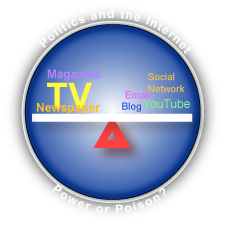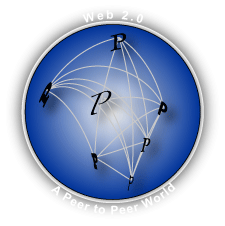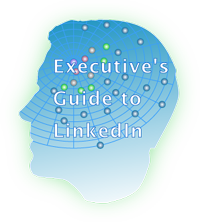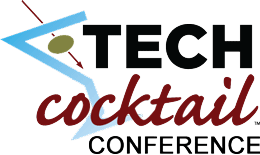Editor’s Choice of the Global Human Capital Journal—Accelerating Disruption and Opportunity
 What a year! When I wrote in the 2007 Year in Review that 2008 “would produce an unimaginable degree of change,” I had no idea how right that would prove to be. We saw major disruption in the global economy, and the U.S. presidential campaign closed the year with a major political upset, largely at the hand of social media. That said, I still believe that 2008 will prove to be a transitional year and that more profound change is on the way. What a year! When I wrote in the 2007 Year in Review that 2008 “would produce an unimaginable degree of change,” I had no idea how right that would prove to be. We saw major disruption in the global economy, and the U.S. presidential campaign closed the year with a major political upset, largely at the hand of social media. That said, I still believe that 2008 will prove to be a transitional year and that more profound change is on the way.
Look in any direction. From a macroeconomic perspective, the global economy is showing itself to be pervasively interdependent. The U.S. successfully exported its real estate finance crisis without even working up a sweat. I don’t believe that anyone really knows where all the bodies are buried yet, and central bank chairmen, national presidents and global organization leaders are still holding their breaths, even though they smile bravely on television. Barack Obama’s successful U.S. presidential campaign showed that a new era of politics is upon us; as we’ll discuss below, […]
Conventional Wisdom Scuttled—Disruption Preview—Business in the Batter’s Box
 Barack Obama’s presidential campaign was more than a major social media milestone because it ushered in a new relationship model among leaders and their supporters. Due to social media, an unprecedented number of individuals had a new kind of active, direct role in Obama’s campaign; moreover, I predict that the Obama campaign and imminent administration will change citizens’ and consumers’ expectations of “leader” and “follower” roles in government and business. Amazon.com changed consumers’ expectations about retail in general—information on demand, reviews, unbelievable variety at low prices—and a significant portion of Obama supporters will want to continue their support to “make the change happen.” These supporters will bring their changed expectations of action and collaboration to their vendors. That means your company. Barack Obama’s presidential campaign was more than a major social media milestone because it ushered in a new relationship model among leaders and their supporters. Due to social media, an unprecedented number of individuals had a new kind of active, direct role in Obama’s campaign; moreover, I predict that the Obama campaign and imminent administration will change citizens’ and consumers’ expectations of “leader” and “follower” roles in government and business. Amazon.com changed consumers’ expectations about retail in general—information on demand, reviews, unbelievable variety at low prices—and a significant portion of Obama supporters will want to continue their support to “make the change happen.” These supporters will bring their changed expectations of action and collaboration to their vendors. That means your company.
The Obama campaign is very instructive to business leaders because business customers are changing expectations of their leaders, as we’ll discuss in more detail below. As the Global Human Capital Journal is not primarily focused on politics, I am less interested in the fact that Obama was elected than how he was elected. Moreover, […]
2009 Poised as Inflection Point in Enterprise Usage—LinkedIn Increases Relevance to B2B Executives
 During the 1990s, I was intimately involved with helping global organizations to decentralize their information technology—as a management consultant and marketing executive. However, a far more disruptive force is imminent today: communications and marketing are rapidly evolving into a networked, distributed pattern, following IT’s lead. Individuals that congregate online will have an increasing role in affecting how other people make decisions, significantly weakening the influence of the mass media on which many marketing strategies depend. Organizations that depend on centralized, controlled communications will be astonished at how fast they become irrelevant over the next five years. Although the case studies are still being written, I’ll go on record as saying that the 2008 U.S. presidential election will prove to be an inflection point of digital social networks’ disruptive potential. During the 1990s, I was intimately involved with helping global organizations to decentralize their information technology—as a management consultant and marketing executive. However, a far more disruptive force is imminent today: communications and marketing are rapidly evolving into a networked, distributed pattern, following IT’s lead. Individuals that congregate online will have an increasing role in affecting how other people make decisions, significantly weakening the influence of the mass media on which many marketing strategies depend. Organizations that depend on centralized, controlled communications will be astonished at how fast they become irrelevant over the next five years. Although the case studies are still being written, I’ll go on record as saying that the 2008 U.S. presidential election will prove to be an inflection point of digital social networks’ disruptive potential.
LinkedIn is a leading venue for B2B and B2C executives, so it merits significant attention. The inputs for this Executive Adoption Snapshot are varied: I have had the opportunity to work with hundreds of executives to apply LinkedIn to their business processes in 2008. I met two LinkedIn executives […]
How Social Networks Boost Market Efficiency for B2B Buyers and Sellers explains how to use LinkedIn to change the rules of business development
 Since the early 2000s, everyone has struggled to develop measurable economic models for social media and Web 2.0, mostly with little success. During 2007 and 2008, CSRA has worked with clients on several levels hammering out models to pass enterprise muster, and here I will briefly share one that shows considerable promise for its practicality and utility to businesses. The immediate context is B2B business development and sales, but it is applicable to numerous other enterprise processes as well. Since the early 2000s, everyone has struggled to develop measurable economic models for social media and Web 2.0, mostly with little success. During 2007 and 2008, CSRA has worked with clients on several levels hammering out models to pass enterprise muster, and here I will briefly share one that shows considerable promise for its practicality and utility to businesses. The immediate context is B2B business development and sales, but it is applicable to numerous other enterprise processes as well.
[…]
Multidimensional Innovation—Inviting Collaboration—Crowdsourcing via LinkedIn
 In August, I have been intensely involved in developing the next iteration of executive LinkedIn training (the Executive’s Guide to LinkedIn, EGLI), which has proven as illuminating as it has fruitful, so I will share key elements of the quick innovation approach I used as well as how Linkedin contributed to it. I believe that by collaborating with EGLI alumni and other people in my network, I have fielded the most innovative and valuable offering ever. I’d love to get your feedback, too! (links below) In August, I have been intensely involved in developing the next iteration of executive LinkedIn training (the Executive’s Guide to LinkedIn, EGLI), which has proven as illuminating as it has fruitful, so I will share key elements of the quick innovation approach I used as well as how Linkedin contributed to it. I believe that by collaborating with EGLI alumni and other people in my network, I have fielded the most innovative and valuable offering ever. I’d love to get your feedback, too! (links below)
[…]
Demand drivers for enterprise social networks: global enterprises suffer innovation crisis while individuals seek employment security; cross-boundary collaboration is a win-win for enterprise and employee […]
Enterprise 2.0 and B2C Web 2.0 Show Serious Traction—But Social Sticky Wickets Remain—How to Trust?
 The Social Networking Conference (SNC) was an excellent place to check the pulse of Web 2.0 adoption from customer and provider perspectives. Producer Marc Lesnick explained in his opening remarks that, in the months preceding this conference, corporations had knocked on his door asking to get involved. His Ticonderoga Ventures had held several SNCs over the past few years, and it had been largely the purview of social networking start-ups and their facilitators. This is a very apt indication of the enterprise adoption predicted by my State of Social Networking Forrester coverage and 2007 Review. The Social Networking Conference (SNC) was an excellent place to check the pulse of Web 2.0 adoption from customer and provider perspectives. Producer Marc Lesnick explained in his opening remarks that, in the months preceding this conference, corporations had knocked on his door asking to get involved. His Ticonderoga Ventures had held several SNCs over the past few years, and it had been largely the purview of social networking start-ups and their facilitators. This is a very apt indication of the enterprise adoption predicted by my State of Social Networking Forrester coverage and 2007 Review.
SNC SF 2008 took place July 10-11, 2008 at the UC San Francisco’s Mission Bay Conference Center. It was a focused conference that balanced start-ups’ and enterprises’ innovation—with a dash of perspective from Apple co-founder Steve Wozniak and Social Networking Watch’s Mark Brooks. On the enterprise side, GE’s Grewal and GM’s Denison covered the enterprise 2.0 and B2C Web 2.0 perspectives respectively, while the U.S. Air Force’s Adkins presented nascent cross-boundary collaboration in […]
Knowledge Economy Unfolds via All Things Digital-Social—Wearing Passion and Personality on Your Sleeve
Discerning Web 2.0 from Web 1.0—Ron May Gets Comeuppance as Happy and Successful
 Web 2.0 entrepreneurs, financiers and professional services folk descended on Loyola University Chicago’s Lewis Hall 29 May 2008 for “Tech Conference,” TechCocktail’s first ever day-long educational event. Founders Frank Gruber and Eric Olson served an effervescent yet heady elixir of heart-to-heart war stories, lessons learned and strategies by entrepreneurs, venture capitalists, lawyers, accountants and an executive coach. Web 2.0 entrepreneurs, financiers and professional services folk descended on Loyola University Chicago’s Lewis Hall 29 May 2008 for “Tech Conference,” TechCocktail’s first ever day-long educational event. Founders Frank Gruber and Eric Olson served an effervescent yet heady elixir of heart-to-heart war stories, lessons learned and strategies by entrepreneurs, venture capitalists, lawyers, accountants and an executive coach.
Since attending TechCocktail 1 in July 2006, I have promoted the periodic TechCocktail “meetups” to everyone who will listen as the place to learn about and connect with Web 2.0 players and technology in Chicago (elsewhere now, too). Frank and Eric have created one of the most worthwhile groups and communities in the city and were recognized in the ITA’s Citylights this year. Their first conference was both high value and quintessentially Web 2.0: speakers were open about what had worked and what hadn’t. The program was well balanced, organized and entertaining. There were considerable lessons for […]
French Finance Minister Declares French rEvolution in Economic Policy is a real-time case study with lessons for G7 Knowledge Economy transition—”Courage” to the rats—A new French realism?
 Illinois leaders were addressed by Her Excellency Christine Lagarde, Economy, Industry and Employment Minister, Republic of France at the special luncheon held in her honor by the Executives’ Club of Chicago at the Westin on 23 May 2008. Attending were Chicago Mayor Richard M. and Maggie Daley, a French delegation that included the Ambassador of France to the U.S. Pierre Vimont, the Head of Cabinet Christian Dufour, David Appia, Minister Counselor for Economic and Commercial Affairs, and numerous executives of Chicago Fortune 500 firms. Illinois leaders were addressed by Her Excellency Christine Lagarde, Economy, Industry and Employment Minister, Republic of France at the special luncheon held in her honor by the Executives’ Club of Chicago at the Westin on 23 May 2008. Attending were Chicago Mayor Richard M. and Maggie Daley, a French delegation that included the Ambassador of France to the U.S. Pierre Vimont, the Head of Cabinet Christian Dufour, David Appia, Minister Counselor for Economic and Commercial Affairs, and numerous executives of Chicago Fortune 500 firms.
If one were not listening attentively and willing to question stereotypes, it would have been too easy miss this intriguing story. However, as in all things “2.0,” profound change manifests slowly at first, and I detected a glimmer of disruption in France’s status quo. Having lived in West Berlin surrounded by the concrete reality of a wall that subsequently, unbelievably, came down, I ask myself, “What if France were […]
Leveraging B2C “Social” Networks for Real Enterprise Advantage—Flashbacks to Web 1.0—People in Bars
 Pan in, circa 1998, and enterprises were beginning to doubt the conventional wisdom that had prevailed during the past three years, namely that “the Internet” was a Silicon Valley fad that would blow over with nary a whimper. It was “for kids,” it didn’t merit adult attention—none of these “businesses” were making money anyway. You can’t be serious, how could a money-losing online bookstore affect GM? It looks silly to read these words today, but that’s only because we know what happened. Here I will suggest that we are on the cusp of a similar shift with Web 2.0 and social networks, I’ll outline an approach you can use to consider your adoption strategy, and I will recommend tactical things you can do right now to leverage LinkedIn, Facebook, Twitter, YouTube, Del.icio.us and others. Pan in, circa 1998, and enterprises were beginning to doubt the conventional wisdom that had prevailed during the past three years, namely that “the Internet” was a Silicon Valley fad that would blow over with nary a whimper. It was “for kids,” it didn’t merit adult attention—none of these “businesses” were making money anyway. You can’t be serious, how could a money-losing online bookstore affect GM? It looks silly to read these words today, but that’s only because we know what happened. Here I will suggest that we are on the cusp of a similar shift with Web 2.0 and social networks, I’ll outline an approach you can use to consider your adoption strategy, and I will recommend tactical things you can do right now to leverage LinkedIn, Facebook, Twitter, YouTube, Del.icio.us and others.
Since 2006, my consulting work has encompassed strategic and tactical sides of Web 2.0 and social networks and, in 2008, I launched a tactically-focused service, the Executive’s Guide to LinkedIn, which helps global enterprises to use LinkedIn for process innovation. This has provided the […]
|
|
 What a year! When I wrote in the 2007 Year in Review that 2008 “would produce an unimaginable degree of change,” I had no idea how right that would prove to be. We saw major disruption in the global economy, and the U.S. presidential campaign closed the year with a major political upset, largely at the hand of social media. That said, I still believe that 2008 will prove to be a transitional year and that more profound change is on the way.
What a year! When I wrote in the 2007 Year in Review that 2008 “would produce an unimaginable degree of change,” I had no idea how right that would prove to be. We saw major disruption in the global economy, and the U.S. presidential campaign closed the year with a major political upset, largely at the hand of social media. That said, I still believe that 2008 will prove to be a transitional year and that more profound change is on the way.
 Barack Obama’s presidential campaign was more than a major social media milestone because it ushered in a new relationship model among leaders and their supporters. Due to social media, an unprecedented number of individuals had a new kind of active, direct role in Obama’s campaign; moreover, I predict that the Obama campaign and imminent administration will change citizens’ and consumers’ expectations of “leader” and “follower” roles in government and business. Amazon.com changed consumers’ expectations about retail in general—information on demand, reviews, unbelievable variety at low prices—and a significant portion of Obama supporters will want to continue their support to “make the change happen.” These supporters will bring their changed expectations of action and collaboration to their vendors. That means your company.
Barack Obama’s presidential campaign was more than a major social media milestone because it ushered in a new relationship model among leaders and their supporters. Due to social media, an unprecedented number of individuals had a new kind of active, direct role in Obama’s campaign; moreover, I predict that the Obama campaign and imminent administration will change citizens’ and consumers’ expectations of “leader” and “follower” roles in government and business. Amazon.com changed consumers’ expectations about retail in general—information on demand, reviews, unbelievable variety at low prices—and a significant portion of Obama supporters will want to continue their support to “make the change happen.” These supporters will bring their changed expectations of action and collaboration to their vendors. That means your company. During the 1990s, I was intimately involved with helping global organizations to decentralize their information technology—as a management consultant and marketing executive. However, a far more disruptive force is imminent today: communications and marketing are rapidly evolving into a networked, distributed pattern, following IT’s lead. Individuals that congregate online will have an increasing role in affecting how other people make decisions, significantly weakening the influence of the mass media on which many marketing strategies depend. Organizations that depend on centralized, controlled communications will be astonished at how fast they become irrelevant over the next five years. Although the case studies are still being written, I’ll go on record as saying that the 2008 U.S. presidential election will prove to be an inflection point of digital social networks’ disruptive potential.
During the 1990s, I was intimately involved with helping global organizations to decentralize their information technology—as a management consultant and marketing executive. However, a far more disruptive force is imminent today: communications and marketing are rapidly evolving into a networked, distributed pattern, following IT’s lead. Individuals that congregate online will have an increasing role in affecting how other people make decisions, significantly weakening the influence of the mass media on which many marketing strategies depend. Organizations that depend on centralized, controlled communications will be astonished at how fast they become irrelevant over the next five years. Although the case studies are still being written, I’ll go on record as saying that the 2008 U.S. presidential election will prove to be an inflection point of digital social networks’ disruptive potential. Since the early 2000s, everyone has struggled to develop measurable economic models for social media and Web 2.0, mostly with little success. During 2007 and 2008, CSRA has worked with clients on several levels hammering out models to pass enterprise muster, and here I will briefly share one that shows considerable promise for its practicality and utility to businesses. The immediate context is B2B business development and sales, but it is applicable to numerous other enterprise processes as well.
Since the early 2000s, everyone has struggled to develop measurable economic models for social media and Web 2.0, mostly with little success. During 2007 and 2008, CSRA has worked with clients on several levels hammering out models to pass enterprise muster, and here I will briefly share one that shows considerable promise for its practicality and utility to businesses. The immediate context is B2B business development and sales, but it is applicable to numerous other enterprise processes as well. In August, I have been intensely involved in developing the next iteration of executive LinkedIn training (the Executive’s Guide to LinkedIn, EGLI), which has proven as illuminating as it has fruitful, so I will share key elements of the quick innovation approach I used as well as how Linkedin contributed to it. I believe that by collaborating with EGLI alumni and other people in my network, I have fielded the most innovative and valuable offering ever. I’d love to get your feedback, too! (links below)
In August, I have been intensely involved in developing the next iteration of executive LinkedIn training (the Executive’s Guide to LinkedIn, EGLI), which has proven as illuminating as it has fruitful, so I will share key elements of the quick innovation approach I used as well as how Linkedin contributed to it. I believe that by collaborating with EGLI alumni and other people in my network, I have fielded the most innovative and valuable offering ever. I’d love to get your feedback, too! (links below) The Social Networking Conference (SNC) was an excellent place to check the pulse of Web 2.0 adoption from customer and provider perspectives. Producer Marc Lesnick explained in his opening remarks that, in the months preceding this conference, corporations had knocked on his door asking to get involved. His Ticonderoga Ventures had held several SNCs over the past few years, and it had been largely the purview of social networking start-ups and their facilitators. This is a very apt indication of the enterprise adoption predicted by my State of Social Networking Forrester coverage and 2007 Review.
The Social Networking Conference (SNC) was an excellent place to check the pulse of Web 2.0 adoption from customer and provider perspectives. Producer Marc Lesnick explained in his opening remarks that, in the months preceding this conference, corporations had knocked on his door asking to get involved. His Ticonderoga Ventures had held several SNCs over the past few years, and it had been largely the purview of social networking start-ups and their facilitators. This is a very apt indication of the enterprise adoption predicted by my State of Social Networking Forrester coverage and 2007 Review. Web 2.0 entrepreneurs, financiers and professional services folk descended on Loyola University Chicago’s Lewis Hall 29 May 2008 for “Tech Conference,” TechCocktail’s first ever day-long educational event. Founders Frank Gruber and Eric Olson served an effervescent yet heady elixir of heart-to-heart war stories, lessons learned and strategies by entrepreneurs, venture capitalists, lawyers, accountants and an executive coach.
Web 2.0 entrepreneurs, financiers and professional services folk descended on Loyola University Chicago’s Lewis Hall 29 May 2008 for “Tech Conference,” TechCocktail’s first ever day-long educational event. Founders Frank Gruber and Eric Olson served an effervescent yet heady elixir of heart-to-heart war stories, lessons learned and strategies by entrepreneurs, venture capitalists, lawyers, accountants and an executive coach. Illinois leaders were addressed by Her Excellency Christine Lagarde, Economy, Industry and Employment Minister, Republic of France at the special luncheon held in her honor by the Executives’ Club of Chicago at the Westin on 23 May 2008. Attending were Chicago Mayor Richard M. and Maggie Daley, a French delegation that included the Ambassador of France to the U.S. Pierre Vimont, the Head of Cabinet Christian Dufour, David Appia, Minister Counselor for Economic and Commercial Affairs, and numerous executives of Chicago Fortune 500 firms.
Illinois leaders were addressed by Her Excellency Christine Lagarde, Economy, Industry and Employment Minister, Republic of France at the special luncheon held in her honor by the Executives’ Club of Chicago at the Westin on 23 May 2008. Attending were Chicago Mayor Richard M. and Maggie Daley, a French delegation that included the Ambassador of France to the U.S. Pierre Vimont, the Head of Cabinet Christian Dufour, David Appia, Minister Counselor for Economic and Commercial Affairs, and numerous executives of Chicago Fortune 500 firms. Pan in, circa 1998, and enterprises were beginning to doubt the conventional wisdom that had prevailed during the past three years, namely that “the Internet” was a Silicon Valley fad that would blow over with nary a whimper. It was “for kids,” it didn’t merit adult attention—none of these “businesses” were making money anyway. You can’t be serious, how could a money-losing online bookstore affect GM? It looks silly to read these words today, but that’s only because we know what happened. Here I will suggest that we are on the cusp of a similar shift with Web 2.0 and social networks, I’ll outline an approach you can use to consider your adoption strategy, and I will recommend tactical things you can do right now to leverage LinkedIn, Facebook, Twitter, YouTube, Del.icio.us and others.
Pan in, circa 1998, and enterprises were beginning to doubt the conventional wisdom that had prevailed during the past three years, namely that “the Internet” was a Silicon Valley fad that would blow over with nary a whimper. It was “for kids,” it didn’t merit adult attention—none of these “businesses” were making money anyway. You can’t be serious, how could a money-losing online bookstore affect GM? It looks silly to read these words today, but that’s only because we know what happened. Here I will suggest that we are on the cusp of a similar shift with Web 2.0 and social networks, I’ll outline an approach you can use to consider your adoption strategy, and I will recommend tactical things you can do right now to leverage LinkedIn, Facebook, Twitter, YouTube, Del.icio.us and others.